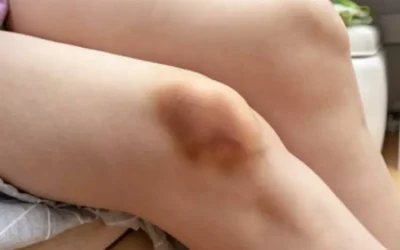Content
We’re here 24/7 to help guide you or your loved on through rehab and recovery. Treatment providers are available 24/7 to answer your questions about rehab, whether it’s for you or a loved one. Submit your number and receive a free call today from a treatment provider. Support groups, like Alcoholics Anonymous and Al-Anon, offer an outlet to discuss treatment goals and challenges with other people who are in alcohol recovery. Abnormalities in fluid levels, electrolyte levels, or nutrition should be corrected. Intravenous fluids may be necessary in patients with severe withdrawal because of excessive fluid loss through hyperthermia, sweating, and vomiting.
What happens after 3 days of no alcohol?
Between 3 and 7 days after you stop drinking
After a few days of giving up drinking, most people can expect their symptoms to stop. For the more severely affected, DTs and severe withdrawal symptoms may continue. For these people, medical supervision is recommended when giving up alcohol.
They typically continue for 3-4 days though they may last up to 8 days. No matter how severe or mild your symptoms, the best long-term treatment is to stop drinking completely, especially when you’ve already gone through withdrawal. To that end, you’ll need to make sure that you’re living in an environment that’s supportive to refraining from alcohol use.
Are any other new therapies available for the treatment of alcohol withdrawal?
Less frequently, people can develop severe symptoms of alcohol withdrawal syndrome. Alcohol withdrawal symptoms usually appear when the individual discontinues or reduces alcohol intake after a period of prolonged consumption. However, healthcare workers should be aware that alcohol withdrawal symptoms can be severe and lead to death. https://ecosoberhouse.com/article/alcohol-addiction-its-most-important-signs/ In all cases, the management of alcohol withdrawal is monitored and managed by an interprofessional team to ensure good outcomes. The hallmark of management for severe symptoms is the administration of long-acting benzodiazepines. The most commonly used benzodiazepines are intravenous diazepam or intravenous lorazepam for management.
Persons with a history of hallucinosis (e.g., schizophrenia, bipolar disorders) have a greater susceptibility to delirium tremens than other alcohol-dependent cohort populations (Stanley et al., 2005). The use of supplemental ethanol in critically ill patients with a secondary diagnosis of alcohol withdrawal is quite controversial. Proponents of ethanol administration state that patients are less sedated and the risk of respiratory depression is decreased compared with benzodiazepine therapy, with a resultant “smoother” management of alcohol withdrawal. Disadvantages of this approach are related in part to IV ethanol exhibiting zero-order elimination leading to unpredictable pharmacokinetics as well as a narrow therapeutic index. Of note, the available literature consists only of clinical studies that used IV ethanol infusions. Muscle spasms are one of the most common alcohol withdrawal symptoms and will usually start within a few hours of your last drink and last up to a few days.
International Patients
Other treatment options to manage alcohol withdrawal symptoms include anticonvulsants. Evidence suggests that some anticonvulsants (e.g., carbamazepine, valproic acid, gabapentin, and tiagabine) can reduce mild to moderate withdrawal symptoms and prevent seizures (Ait-Daoud et al., 2006; Myrick et al., 2005, 2009). Alcohol withdrawal occurs in those physically dependent on alcohol and is the result of the neuroadaptive compensatory changes that occur during prolonged exposure to alcohol’s depressant effects (see Chapter 3).

Routine administration of magnesium sulfate has not been shown to improve withdrawal symptoms,9 but supplementation is appropriate if a patient is hypomagnesemic. Multivitamins and thiamine (100 mg per day) should be provided during treatment for alcohol withdrawal. If intravenous fluids are administered, thiamine (100 mg intravenously) should be given before glucose is administered, to prevent precipitation of Wernicke’s encephalopathy.
TREATMENT
Supportive care – monitoring and frequent clinical reassessmentThis includes monitoring the vital signs, such as heart rate and blood pressure, as well as repeatedly checking glucose levels and alcohol concentration. It is important to contact a physician if you plan to end use or if you begin to feel any withdrawal symptoms after you stop using alcohol, as withdrawal symptoms can become life-threatening if not treated appropriately. Here are twenty things that you can do to help cope with alcohol withdrawal. The long-term outlook for someone experiencing alcohol withdrawal is highly dependent on what happens after detox. Meaningful recovery comes from a strong commitment to an extended period of treatment after detox. The professional alcohol detox process is relatively short, so it will be crucial to connect patients to the next stages in the continuum of care.
What happens on day 2 of no alcohol?
Some symptoms, like nausea, headaches, and fatigue, are similar to a hangover. It's not unusual on Day 2 to be experiencing shakes, sweating, and insomnia as part of alcohol withdrawal. These symptoms indicate that we've become physically dependent on alcohol.
To achieve a stable point in detoxification, monitoring blood pressure, body temperature, heart rate, and control of the physical symptoms is important. Outpatient alcohol detox may be a good fit for people at low risk for severe withdrawal. Withdrawal progress is monitored through frequent check-up appointments within outpatient clinical settings (e.g., doctor’s office), allowing for the level of care to be escalated if needed. More severe withdrawal symptoms may also include fever, convulsions, and delirium tremens (DTs). DTs can cause confusion, panic, and hallucinations (seeing, hearing, or feeling things that aren’t real).
These can include isopropyl alcohol, commonly known as rubbing alcohol, which can lead to acidemia without ketosis as well as hemorrhagic gastritis. Ethylene glycol (antifreeze) ingestion can lead to an altered sensorium, seizures, and severe renal dysfunction with acidemia that may require the initiation of hemodialysis. Methanol is rarely ingested as an ethanol substitute but can result in multisystem organ failure, blindness, and seizures. Mild symptoms can be elevated blood pressure, insomnia, tremulousness, hyperreflexia, anxiety, gastrointestinal upset, headache, palpitations.
Alcohol causes both physical and mental problems depending on how great the impact of the withdrawal effect is on the central nervous system (CNS). Specialists for treating alcohol withdrawal may prescribe certain medications to reduce withdrawal pain. After the symptoms of alcohol withdrawal have been reduced, the person can focus better on complete discontinuation from alcohol addiction.
Alcohol Withdrawal Treatment
GABAergic medications (benzodiazapines) are effective at reducing symptom severity, but they do not address the primary pathology of abnormally elevated glutamate. While cirrhosis scars from excessive drinking are irreversible, quitting alcohol and leading a healthier lifestyle can help your liver heal from alcohol-related liver disease. Professional alcohol detox can create a safe and supportive environment for detox to occur.

The goal is to safely and gradually decrease your dependence on alcohol so that you can resume your daily life. With AWS, you may experience a combination of physical and emotional symptoms, from mild anxiety and fatigue to nausea. Oral chlordiazepoxide and oxazepam are very commonly used for the prevention of withdrawal symptoms. Other drugs often used to manage symptoms include neuroleptics, anticonvulsants like carbamazepine, and valproic acid.
If you have mild-to-moderate alcohol withdrawal symptoms, you can often be treated in an outpatient setting. During this process, you will need someone to stay with you and keep an eye on you. You will likely need to make daily visits to your provider until you are stable. If you’ve been regularly drinking excessively, when you stop drinking all of a sudden, you may experience one or more alcohol withdrawal symptoms.
- Alcohol disrupts glutamatergic signaling at every level, leading to CNS hyperexcitability that underlies acute AWS, as well as postwithdrawal craving and relapse.
- Depending on the severity of the level of alcoholism, withdrawal symptoms generally last from several days to several weeks to, in rare cases, months.
- Moreover, it should be used with great caution in patients with pulmonary insufficiency because of the risk of respiratory depression.
- Depending on the individual’s symptoms and risks, detox may include observation and monitoring only, while others may include intense medical interventions to limit danger and life-threatening consequences.
- If you drink only once in a while, it’s unlikely that you’ll have withdrawal symptoms when you stop.